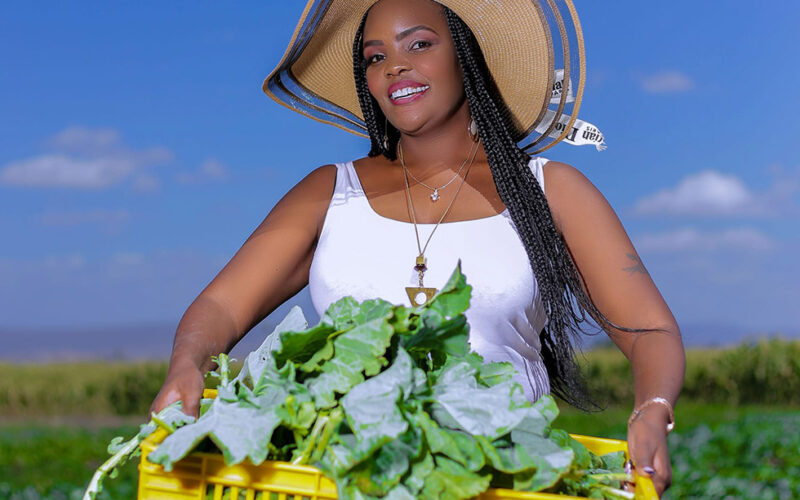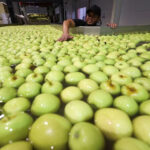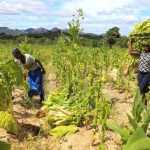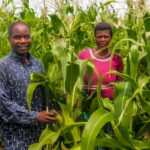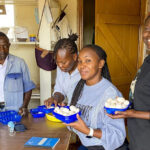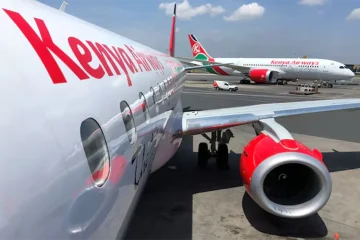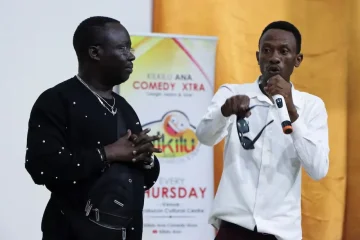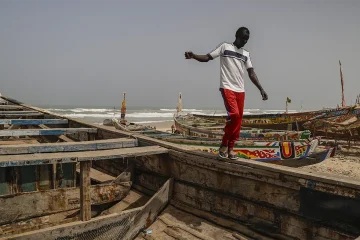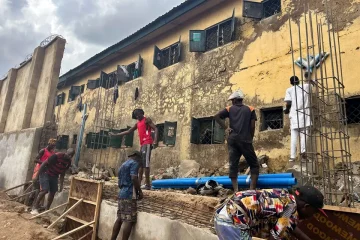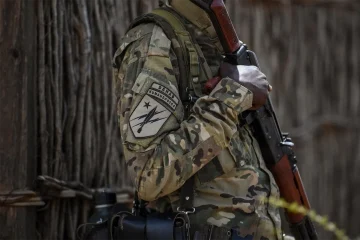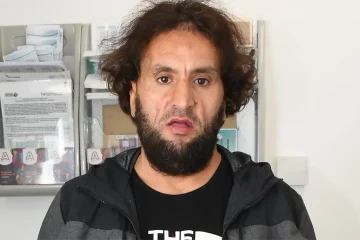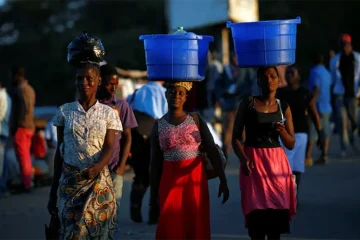IT is mid-morning in Kitengela, in Kajiado County, south of Nairobi and Wangari Kuria’s farm is buzzing with activity. In one area, a farm manager checks dragon fruit seedlings while in another area, a group of would-be farmers seated under a tent are keenly taking notes.
The group of 40 are being given an introduction to mushroom farming by Kuria. They have gathered from all parts of the country.
Kuria, popularly known as Farmer on Fire, is the Founder and CEO of Farmer on Fire Ltd, an organisation that provides farming skills for farmers in Africa, especially women.
“My focus is empowering small-scale farmers because I’m a small-scale farmer. When we say youth and women should get more into agriculture, they don’t have a lot of assets, hence this training helps,” she explained.
Kuria was born and raised in Nyahururu, Nyandarua County, famous for its agricultural productivity with crops including maize, beans, Irish potatoes, cabbages, spinach, kale and peas grown in the area to fertile soils and favourable climate.
Fed by nutrient-rich volcanic soils, Kenya’s fresh vegetables are exported around the world.
“I grew up in Nyahururu, and basically everyone there is a farmer, so naturally, those skills were in me,” Kuria said.
After being unexpectedly retrenched from the real estate industry, she moved to out of the city, to rural Kitengela. Left without an income or even a way to spend her day,, she remembered her mother’s kitchen garden and decided to create one for herself.
“I remembered my mum had a kitchen garden, so I set up one to cut on costs. And since the market is far from where I stay, I killed two birds with one stone by creating a kitchen garden,” she narrated.
According to the Federation of Kenya Employers, the country’s unemployment rate stands at 12.7%, with the youth demographic (15-34 years old) constituting 35% of the population, experiencing the highest unemployment rate at 67%.
Being among the first people to move into her new neighbourhood, many of her neighbours had idle land. Her Maasai neighbours mostly practised livestock production. She asked around to hear if she could farm some ground.
“I would go to my neighbours’ plots and ask them if I could grow something to make sure their lands are not grabbed,” Kuria recounted
She soon realised there was a gap in the market for indigenous vegetables.
“A lot of people were excited to see that it was fresh. A lot of the vegetables sold around here come from far and they are perishable. So I got a very good market, and it encouraged me to keep going and expanding,” she remembered.
Being a graduate of United States International University Africa (USIU), Kuria’s classmates were very interested in learning how she was growing crops, so she started posting clips on social media, narrating her story and teaching people how to farm. She then started her YouTube page, Farmer on Fire, which now contains over 300 videos.
“I did not want to be a farmer just like my mom or grandmother, I wanted it to have a twist to it, so social media became my thing to make it more interesting,” she said.
Being an urban farmer, with a small space, Kuria focuses mainly on high-value crops such as oyster and button mushrooms, strawberries, black soldier fly larvae, eucalyptus, Azolla and dragon fruits. She dries much of her produce with solar dryers and packages them into different products.
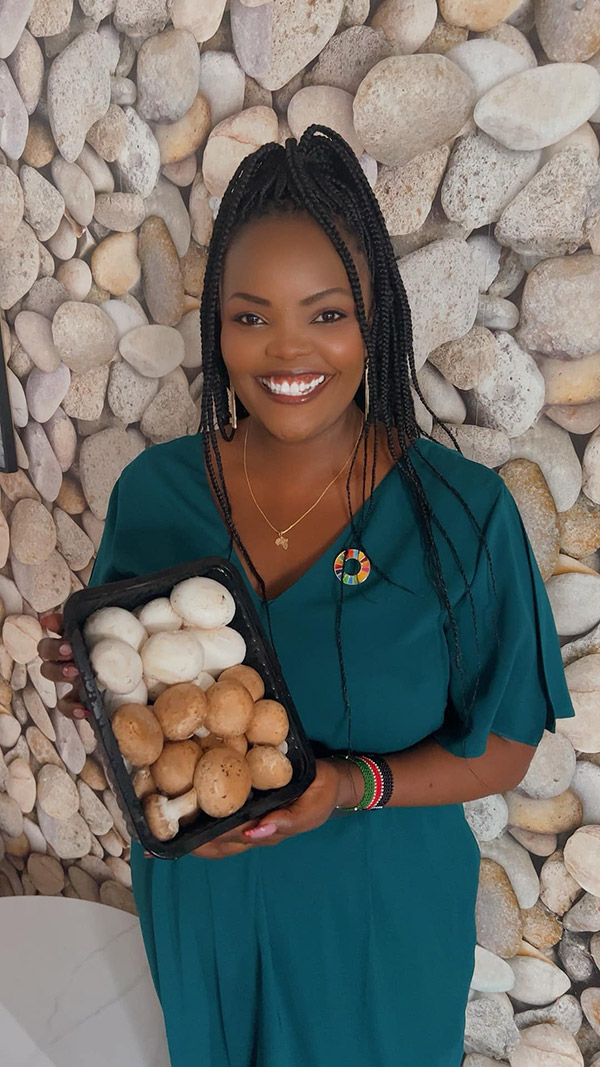
“I focus more on small-scale holder farming, because it’s 80% of Kenya’s production. Our GDP is serviced by people with small pieces of land. I am looking for how we can become more efficient, productive and raise our levels of making money in small spaces.”
Kuria not only grows high-value crops, she also trains farmers and aspiring farmers. She offers online sessions on Telegram and monthly on-farm training. She charges 2000 shillings (US$13) for online training and 4850 shillings (US$33) for on-farm training. She has trained over 12,000 people through her online training and 2,400 people through lessons conducted on her farm.
“Our farms are also essentially for training. We don’t just want to grow crops, we also want to empower other people. I want other people to know that they can go into agriculture and make income in their own backyard, conveniently,” she explained.
“From the training, (what) I’ve learnt is you don’t have to start big, it’s about growing from one step to another,” said Elizabeth Gathoni, one of Kuria’s trainees.
Kuria has also travelled the world as a voice for other farmers. She has been heavily involved in activism, speaking on behalf of small-scale farmers. She has travelled to South Africa, Paris, China, the USA and other countries.
“I feel like farmers do not have a voice, yet they are gatekeepers of our planet. We do not see farmers represented in the legislature and other departments. So. I want to push that farmers should be seen, farmers should be proud and they should farm with dignity.”
In 2023, Kuria won the Global Citizen Prize, an accolade that honours activists and advocates for their proactive efforts in making positive contributions to their communities.
“I was very happy to win the award. For me it’s a sign that we are in the right direction. And farmers that are getting closer to their goal. It is not that I am the best farmer, it is to say that I want to see more farmers, Kenyan and African, winning.”
Kuria has also helped address challenges faced by women-led agribusinesses in her community.
“A lot of women are just at home doing nothing, and they lack finances in the family hence they have no say. In January 2023, it was very dry in Kitengela, a lot of Maasai women were coming to fetch water in my house. They would complain how the drought was affecting them and their livestock. We started a project with them…” Kuria narrated.
Kuria and the women planted mushrooms. This helped them to supplement their nutrition and when harvested, she helped sell some of the mushrooms, providing the women with extra income.
Kuria’s farm is fully sustainable. She is conscious about growing plants that don’t end up being eaten. Any agricultural waste is recycled to make manure or provides food for BSL (Black Soldier Fly Larvae) or mushrooms. She has an underground tank where she harvests and reserves over 10,000 litres of water.
“We always thought water will be there. That is not the case anymore. Now we need to start talking about water harvesting.”
“Wangari is a person who really wants to learn. Provided it is about farming, she really grabs the opportunity and goes for it” Kimiti Wa Gitau, an agricultural show host and consultant, said of the farmer.
Kuria is now taking her experiences and knowledge to another level as an author. She has written two books namely, “How to Start Farming – A Guide from Small Scale to Profit Making Agribusiness”, and “This Girl is on Fire”. She is currently working on her third book.

